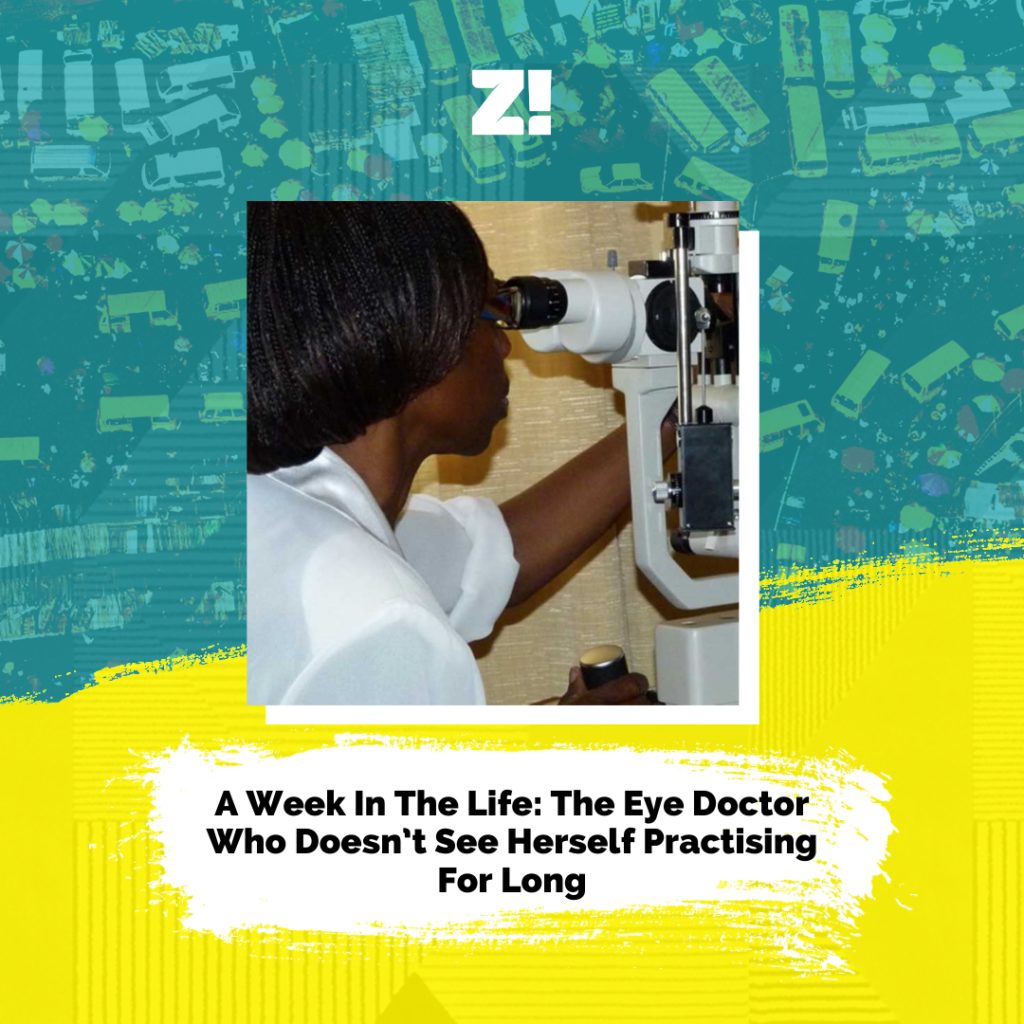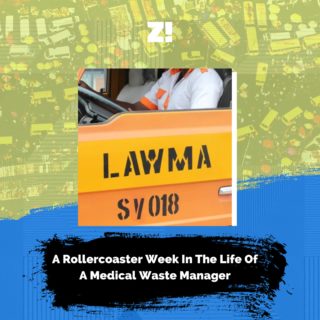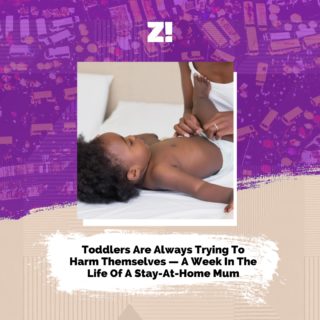“A Week In The Life” is a weekly Zikoko series that explores the working-class struggles of Nigerians. It captures the very spirit of what it means to hustle in Nigeria and puts you in the shoes of the subject for a week.
The subject of today’s “A Week In The Life” is an optometrist. She debunks the myth that glasses correct eyesight, she gives us tips for healthy eyesight and tells us why she doesn’t see a future for herself in her profession.

MONDAY:
These days, I don’t have a fixed time to wake up because it depends on when I sleep. And I sleep at any time because I’m presently in-between jobs. However, on most days, when I sleep at midnight, I wake up by 7 am.
Today, when I wake up at 7, the first thing I do is try to plan my day. If I was working, I’d have woken up by 5:30 am 0r 6:00 am so as to beat Lagos traffic. Thankfully, those days are behind me.
As an optometrist, a typical clinic day involves assessing patients. A patient comes in and you do a comprehensive eye test. You take patient history, examine the patient’s eyes with a pen torch or an ophthalmoscope (this helps to check the back of the eyes). Then, depending on the patient’s complaints, signs and symptoms (redness of eyes or an injury, or disease), you’d either first treat those symptoms or refract the patient.
Refracting the patient means checking the lens power that’s suitable for the patient to see well. And to find out what the patient can also tolerate because you can give a powerful lens that makes the patient see really well but they aren’t comfortable with it. They can’t walk because the ground either appears too high or low. Or the lens gives them a headache. Many times, we have to reduce the clarity to make the patients feel comfortable. For example, for patients who don’t read, there’s no point refracting them to the highest clarity especially if it makes them uncomfortable with their environment. So, I ask patients their occupation to determine what kind of lens to give them.
All these things don’t matter for now. My major goal for today is to structure my day in a way that’s productive. But before I continue thinking, I need to eat. I don’t want to faint over anything.
TUESDAY:
Yesterday was productive, but today, not so much. I’ve spent a large part of today daydreaming. Like now, I’m remembering one patient that was brought to the clinic by his parents. An 8-year-old boy who, according to his father, was very stubborn. One day, while the dad was flogging the boy, the cane mistakenly touched the child’s eye. On examination of the eye, we realised that the lens had changed position. That is, the lens was no longer in its normal place.
When we checked the eye pressure, it was 50 something and normal eye pressure is between 10-21 mmHg. The boy had already lost his vision. To preserve what was left of the eye, we referred the boy for emergency surgery. Even after the surgery, his sight never returned.
On days like this, I can’t help but imagine how the father feels. I don’t know if he’ll ever forgive himself. Does he wonder that perhaps if he had controlled his anger, his son would still have two functional eyes?
I’m starting to think myself into sadness again. I’m going to sleep and try to restart my day after I wake up.
WEDNESDAY:
People are funny sha. Today, a friend texted me asking for “free” tips to take care of his eyes. The person didn’t even offer money for consultation but because I’m nice, I told him some things.
The fundamental rule is that you shouldn’t put just anything in your eye. Also, if you use makeup regularly and realise that you are allergic to a particular product, it’s advisable to discontinue it. For people with a family history of glaucoma (not everyone might know), it’s advisable to go to an eye clinic once every year. This is to help in early detection and control of the disease because it has no cure. Glaucoma causes nerve damage in the eyes, which can’t be restored when lost, so early detection is the best bet to slowing its progression.
People who stare at computers all day are advised to practise the 20-20-20 rule. That is, for every 20 minutes, you should look at something 20 feet (Editor’s note: 20 feet is as tall as a giraffe or about two and a half times as tall as an artificial Christmas tree) away for 20 seconds. The computer is always in your face, therefore you should look away at intervals.
If that isn’t possible, then the next step should be anti-reflective lenses. These help to reduce the strain on the eye because of the light from the screens of computers. Additionally, for UV light, sunglasses are recommended for everyone because UV light can cause a lot of damage to the eye. A lot of people think that sunglasses are for fashion but you’re actually protecting your eyes by wearing them.
The most important tip I gave him was that people shouldn’t wait until there’s a problem before visiting the clinic. People should try to check their eyes regularly once a year and shouldn’t see it as a waste of money. Especially in cases like glaucoma (also known as the silent thief of sight), where you wouldn’t detect it until it’s too late.
I should have charged him for the consultation. Another time will come.
THURSDAY:
One of the biggest misconceptions people have is that glasses are meant to fix your eyesight. They are not.
For issues like myopia/short-sightedness (where you can’t see things that are far away) what happens is that images meant to be formed on the retina are formed in front of it. In hyperopia/farsightedness (where you can’t see close images), the image is formed at the back of the retina. While there are many reasons why this happens, the common symptom is that vision at this point is blurry.
So, how will a piece of glass change how your eyes are? What glasses do is that they manipulate the light coming into your eyes to fall on the retina so that you can see clearly. A child’s prescription changes because their eyes are developing. Even for adults, their eyes sometimes change. It doesn’t mean that glasses cure you; they just help. It’s like saying wheelchair cures paralysis, it doesn’t. It’s only an aid. Some of these conditions are progressive so most people have to change their glasses every two years. Other times, it’s regressive so you also need to adjust your lens accordingly.
Factors like diabetes and hypertension also affect vision. If your blood sugar shoots up, there can be sudden blurred vision. There are times patients complain about blurry vision, and I ask them to check their blood sugar. Some say the range is high, so I don’t give them anything because once the blood sugar level comes down, the refractive index (how fast light enters the eye) changes and the lens is wasted. In cases like that, the solution is usually to get their blood sugar under control.
The issue of glasses needing a change every time is not our fault. The refractive state of your eyes can change at any time. And because the glasses are for only one state, the glasses will have to be changed when the refractive state changes.
This is what I spent my whole day doing: convincing someone that optometrists aren’t out to cheat them.
FRIDAY:
Optometry struggles as a profession in Nigeria because it’s not well known and the pay is low. A lot of people come to the eye clinic and don’t even know what optometry is. They just refer to me as an eye doctor. For people that even know, they don’t really understand the scope of what the job entails. Every time I tell someone I’m an optometrist, I have to explain what I do.
Having to explain all the time can be tiring. I think one of the reasons optometry is not really known is because, in Nigeria, we have over 170 universities and only about seven offer optometry. Even people who attended schools offering the course with me still don’t know what we are doing.
One time, a patient asked if I was an optometrist or an ophthalmologist, and I had to explain the difference. Then the person was like: “Why would you spend 6 years on that? Why didn’t you just go for ophthalmology instead?” For people like me who didn’t choose it as a first choice, it’s always very hurtful. It’s like a reminder that I made a mistake when it’s not the reality.
Another thing is that in clinical practice, there is no clear hierarchy like in medicine where you can become a consultant and charge some kind of money. We don’t have that option. There’s not a lot of difference between someone who has been working for the past 20 years and someone who has been working for 5. You don’t have much to make you invaluable. You can’t even threaten to leave because there’s a newer, younger replacement for you.
Today, I can’t help but imagine my ideal future — a satisfying job where I feel like I’m making a difference in the world. It also involves having my own family and living a quiet life.
Editor’s note: The images used were taken randomly from the internet as the subject wanted anonymity.
Check back every Tuesday by 9 am for more “A Week In The Life ” goodness, and if you would like to be featured or you know anyone who fits the profile, fill this form.




